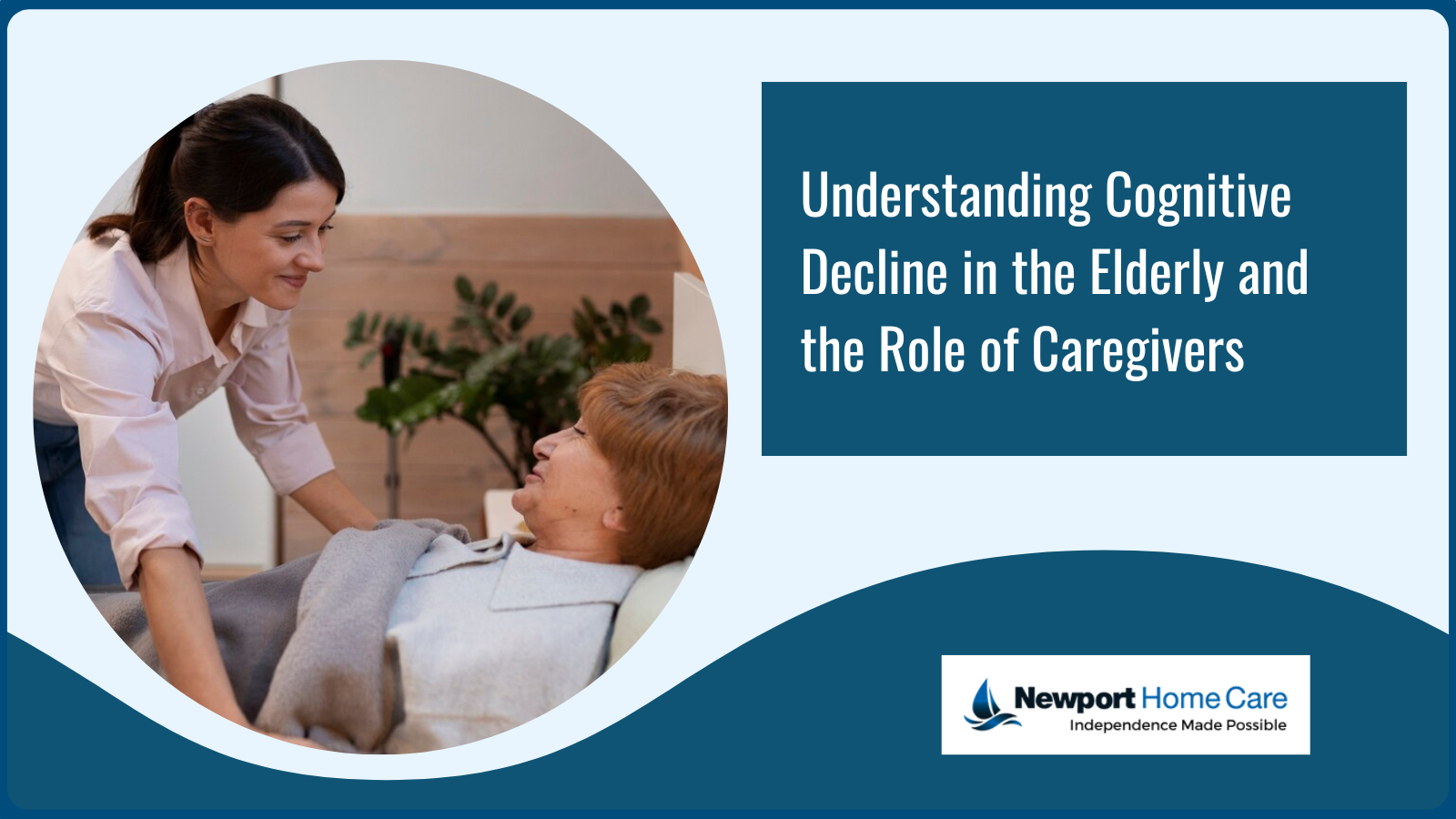


Aging is a natural phenomenon everyone has to go through. The normal aging process is associated with cognitive decline, such as processing speed and certain memory, language, visuospatial, and executive function abilities.
According to research, nearly a third of Americans aged 65 and older have some level of cognitive impairment, which also includes 10 percent who have dementia. Read on to learn more about cognitive decline in the elderly and the role of caregivers.
Aging people can suffer from various cognitive declines. Some of them include:
Age related memory loss is considered a normal part of aging and is distinct from more severe cognitive impairment or dementia. Normally, two types of memory decline aging people suffer from. They are short term memory and long term memory.
Age related memory decline can impact various aspects of daily life and tasks, such as remembering appointments, deadlines, or commitments, recalling recent conversations, events, or details, and learning and retaining new information or skills.
Age related cognitive decline can affect various tasks, such as decision making, problem solving, and reaction speed. Cognitive processing slows as an individual ages due to changes in brain structure and function, such as decreased neuronal density, synaptic connections, and neurotransmitter levels.
Processing speed reduction can cause various problems for elderly people. For example, older folks may take longer to make decisions or get overwhelmed by various options. To cope with slower processing speed, elderly patients need to break tasks into smaller parts, practice cognitive exercises, stay physically active, etc.
Older individuals may have difficulties filtering out distractions and staying focused, making them more susceptible to ambient cues and interruptions. This might be related to changes in neurotransmitter levels, brain shape, and cognitive processing speed.
Various factors can lead to challenges in attention and focus during aging. Some such factors are:
Older individuals can perform mindfulness meditation and cognitive training to cope with attention and focus challenges, modify their environment, take regular breaks, etc.
The roles of caregivers are as follows:
1. Providing Emotional Support:
Caregivers should be kind and patient while engaging with elderly individuals who are experiencing cognitive impairment. Empathy implies understanding and sharing the emotions of others, whereas patience entails keeping calm and helpful even under challenging situations.
Caregivers may provide a supportive atmosphere that fosters safety, comfort, and independence for older persons experiencing cognitive changes. They should also support and reassure those experiencing cognitive changes, recognizing their efforts and accomplishments, no matter how modest.
2. Assisting with Personal Care:
Caregivers can help them with bathing, hygiene, dressing, toileting, and meal preparation. Caregivers can also break down complex tasks into simple pieces and offer clear, step by step directions to help people with cognitive changes comprehend and accomplish them.
They can use memory aids and reminders to help elderly people with cognitive impairment remember crucial activities, appointments, and personal care routines. This might include setting alarms, employing pill organizers, or establishing visual indicators.
3. Encouraging Cognitive Stimulation:
Cognitive stimulation is critical for preserving cognitive function, encouraging neuroplasticity, and decreasing cognitive decline in those with cognitive changes. This entails keeping the mind active with various activities, workouts, social contacts, and novel experiences.
Some of the best cognitive activities and exercises include playing games like puzzles, crossword puzzles, and Sudoku, reading books, newspapers, or magazines, and participating in artistic pursuits such as painting, drawing, crafts, or music therapy.
Caregivers should also encourage older people with cognitive decline to engage in social activities and group trips to improve social interaction, communication skills, and emotional well being.
4. Advocating for Healthcare Needs:
Caregivers play an important role in controlling cognitive changes by advocating for the healthcare requirements of older people with cognitive impairment. They may provide respite care to those experiencing cognitive changes. Respite care can include cognitive stimulation programs, social activities, and therapeutic interventions targeted to the requirements of older adults with cognitive impairment, improving overall cognitive health and well being.
Caregivers should look for indicators of severe cognitive impairment, such as major changes in memory, language, judgment, or problem solving ability.
Aging can lead to cognitive decline in the elderly. Elderly individuals with cognitive decline will face memory loss, processing speed reduction, and, lastly, attention and focus challenges. Thus, caregivers play a significant role in supporting older adults with cognitive disorders. However, it’s also essential for caregivers to seek support and resources for themselves.
Are you looking for affordable homecare services for your loved ones suffering from cognitive decline? If so, then visit us at Newport Home Care. From assistance with medication management to daily activities and emotional support, our caregivers provide various services to transform your loved ones’ standard of living and well being. For more details on our caregiver services, contact us today.